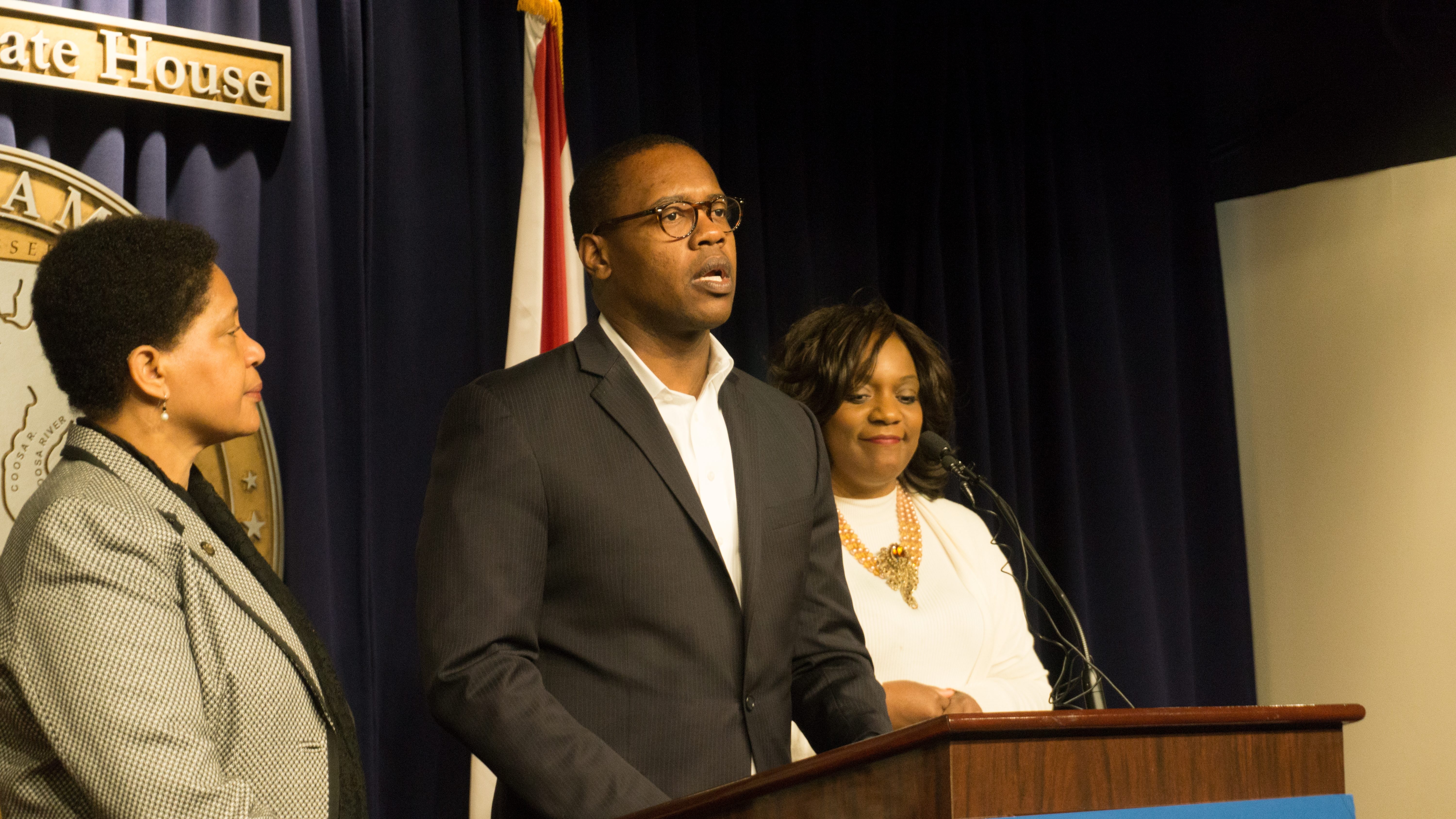Democratic leaders in the Alabama House and Senate said Tuesday there is no consensus among their caucuses about whether to support Gov. Kay Ivey’s proposed gas tax increase.
They say the debate will be a defining moment for their caucus nonetheless and will give them an opportunity to have some leverage as GOP leaders may need their votes for any gas tax hike to be approved.
“Some of my members support the concept, especially those from rural areas,” said House Minority Leader Anthony Daniels, R-Huntsville. “I have some members that are on the fence. Then I have other members that are not going to move from the no vote.”
Ivey called a special session Tuesday intended to force lawmakers to focus on her proposed gas tax hike. Her decision comes after she said she would do so “if necessary” during her second State of the State address just an hour earlier on Tuesday.
Ivey’s proposal would raise the motor fuels tax by 10 cents over the next three years.
Given the unified stance of the GOP leadership, it’s likely the bill will move swiftly through the legislative process regardless of whether or not Ivey calls a special session. But it isn’t so clear if the entire GOP caucus will support the plan.
The Alabama Republican Party passed a resolution opposing the increase, and some more conservative lawmakers are planning to oppose the hike.
If the GOP is split, Ivey and GOP leadership may need Democratic votes.
“For me as a leader, I have to make certain that we talk through and make certain that we are about to have deeper about some of the things that we want to prioritize in our caucus,” Daniels said. “This is a defining moment for our caucus and will give us an opportunity to have a seat at the table for something I think the governor will need us on.”
The increase, dubbed the Rebuild Alabama Act in the Legislature, is being carried in the Alabama House of Representatives by Rep. Bill Poole, R-Tuscaloosa, and in the Senate by Sen. Clyde Chambliss, Prattville.
“I think she was very brave in stepping up and owning to a ten cent tax, something that is very needed,” said State Sen. Bobby Singleton, the Democratic minority leader in the Senate. “The question is how do we get there.”
Singleton said it’s hard for members of the Senate to digest the bill since they’ve only had it a few days. It was released publicly Friday.
“A few people are very apprehensive about the means of some of the things in the bill, and we need to understand that and be able to deliberate it,” Singleton said. “If we don’t have time to deliberate it, I think people are going to fall off the fence. It could have a chance to not pass.”
Singleton joined Ivey at a press conference in rural Alabama, where she announced her Rebuild Alabama plan. He has been supportive so far of the plan, but he hedged his support Tuesday.
“I’m with her on the subject of infrastructure,” Singleton said. “But again, we’re still trying to see how we get there.”
Funding for counties and municipalities is important to Singleton and other lawmakers from rural counties. The current bill would allocate a little more than 66 percent the state, 25 percent to counties and a little more than 8 percent to municipalities.
If funding is secured for local and county roads, Singleton said that can help.
“If we will be able to do that, I think that will be able to bring some people on board because they will be able to see more roads and pavement in their communities,” Singleton said.
A report from the Alabama Transportation Institute found that the gas tax would cost the average driver about $55 a year or $4.58 a month, based on an average of 12,000 annual miles driven and a fuel efficiency of 22 miles per gallon.




















































